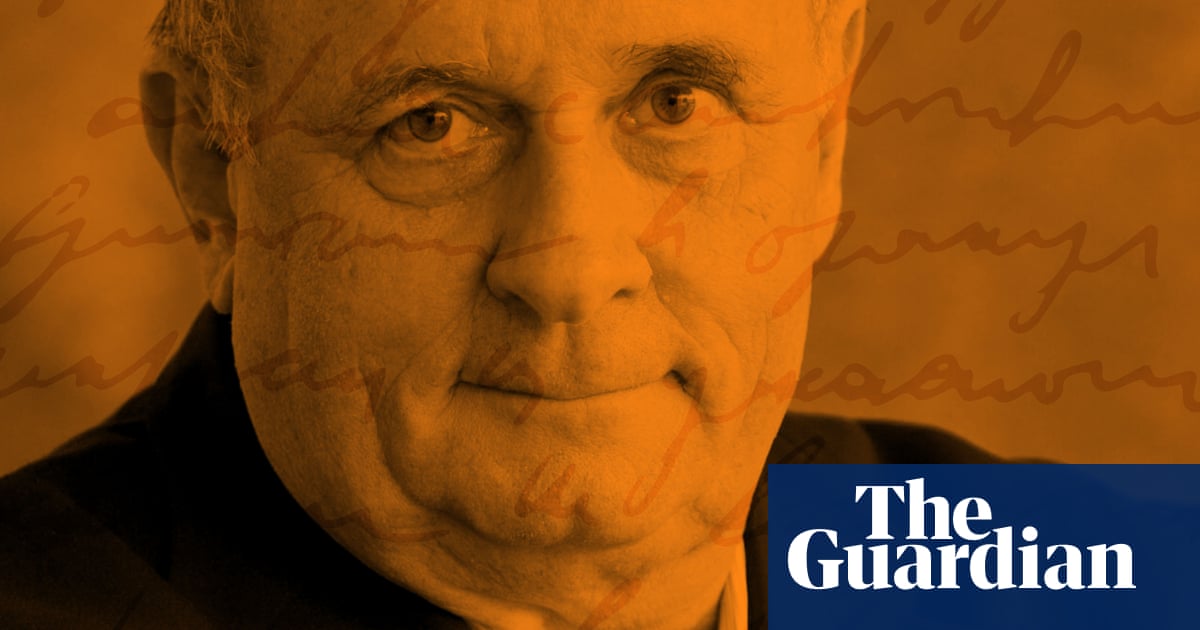Edmund White,who has died aged 85, was born in Cincinatti, to conservative, homophobic parents. Although he soon rejected almost all his family’s cultural values, he retained their work ethic: White published 36 books in his lifetime, and was working on a tale of queer life in Versailles when he died.
Starting out his career in New York, during the magical and radical years that fell between gay liberation and Aids, he then worked hard and long enough to be eventually acclaimed as the “elder stateman” of American queer literary fiction. White’s most characteristic trick as a writer was to pair his impeccably “high” style with the raunchiest possible subject-matter. When talking about gay men’s sex-lives, the goods have rarely been delivered so elegantly. Author and director Neil Bartlett suggests some good places to start.
A Boy’s Own Story (1982) was White’s breakthrough in the UK. A wonderfully well-told and clear-eyed chronicle of one young man’s progress though the 1950s, it was streets ahead of any other queer “coming of age” novel that had appeared up to that point – and changed British publishing. This was the novel that finally proved to the industry that if your sentences are beautiful and true enough, then book-buyers of all stripes will love you. And not despite the fact that you’re gay, but because of it.
White wrote six volumes of autobiography; in addition, almost all of his fiction has clear autobiographical roots. For its lavishly deadpan evocation of a truly appalling childhood – and especially for its brutal takedown of White’s own trainwreck of a father – try starting your relationship with the man behind the fabulous sentences by sampling My Lives. And to get his view on Aids and its aftershocks – the context of almost everything he wrote – read The Married Man, his autobiographical novel, which ends with an only very lightly fictionalised account of the death of White’s lover Hubert Sorin from Aids in 1994. The heartbreak that lies at the heart of the last 45 years of gay life has often been written about, but rarely so dispassionately or powerfully as in those pages.
White’s book that almost no one now talks about is one of his most important – and enjoyable. The Joy of Gay Sex is a gloriously sex-positive, wise and witty compendium of advice about how to get the best out of your body – and your heart. The term gets used too often, but this is a groundbreaking volume.
Sign up toBookmarks
Discover new books and learn more about your favourite authors with our expert reviews, interviews and news stories. Literary delights delivered direct to you
after newsletter promotion
White wrote as he talked: unstoppably, generously and at speed. The exception to this rule was his magisterial 1993 biography of Jean Genet, which took him seven years to research and finish. The result is a heartfelt tribute to Genet’s own art and a scrupulously well-organised account of how a gutter-born queer outsider became one of his country’s greatest literary stylists – and one of the most risk-taking political provocateurs of his century. Genet was about as unlike White in his background and life choices as a fellow gay author could have been; nonetheless, the fact that this book was a labour of love shows on its every page.
Forgetting Elena (1973) was White’s first published book. A scrupulously enigmatic account of life on Fire Island, off Long Island, it somehow manages to transmute its bewildered young protagonist’s doubts and fantasies into something as elegant, beautiful and mysteriously meaningful as a Japanese folding screen. Its opening also features my favourite sentence of White’s: “I am the first person in the house to awaken, but I am unsure of the implications.”
Any claim that White was a “great” writer as opposed to a merely brilliant, sexually explicit or culturally pioneering one – all of which he undoubtedly was – has to rest on his two “big” novels: The Farewell Symphony and The Married Man. The Farewell Symphony, which came out in 1997, is an account of one man’s experience during the almost unbelievable transformation of gay male life that happened between the 70s and 90s. Rooted as it is in very specific times and places, this book couldn’t be more deeply felt, more ambitious in its sense of contested cultural history – or simply better written. The Farewell Symphony and The Married Man, published in 2000, are a definitive refutation of the canard that “gay” writing can only ever really be of interest to a “gay” audience – and a significant part of the reason why that tired old argument is now so rarely heard.
